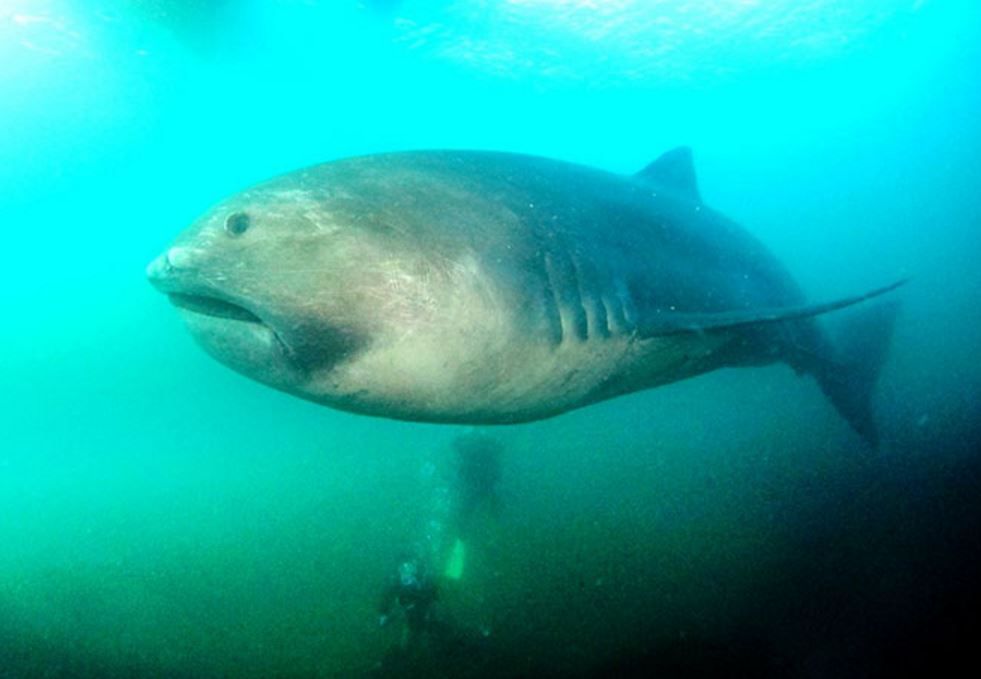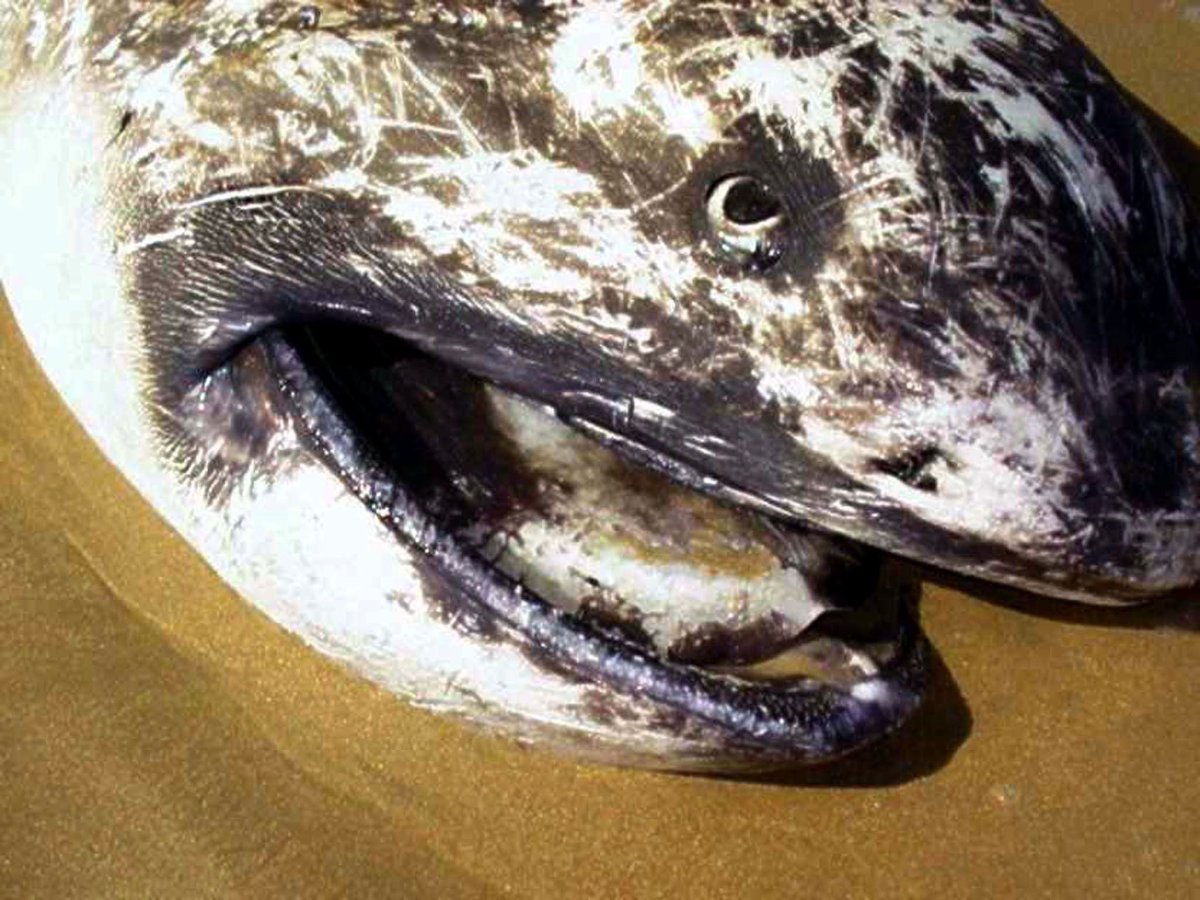
Megamouth sharks are enormous sea creatures that we know almost nothing about—scientists have only encountered 102 specimens of the animals ever, and it was discovered a mere 41 years ago in Hawaii.
Japanese fishermen and residents of Tateyama, Chiba Prefecture, were thus very surprised when a megamouth got snagged in a fishing net near a local lighthouse on May 22, as reported by the The Asahi Shimbun. It was then moved to an area of open ocean in a guide cage, Earth Touch News noted, and filmed by reporters and a fish researcher and television host named Sakana-kun, who is also a professor emeritus of the Tokyo University of Marine Science and Technology. Footage of the shark was captured by a local resident named Hiroyuki Arakawa.
Sakana-kun reportedly dove into the water "in his trademark fish-shaped headdress" to identify the megamouth, and said that he could "see her vigorously swimming."
Posted by Hiroyuki Arakawa on Monday, May 22, 2017
But then, on May 24, the shark was found on the seafloor not breathing, and has since been reported dead. "It is regrettable," a downcast Sakana-kun told Asahi. "Having seen her on the previous day I thought she was going to become energetic." It's not clear what caused the shark to die, though the stress of being caught is capable of killing fish, even if they at first seem fine when first freed. Unlike many sharks, the megamouth doesn't need to constantly move to breathe, and is capable of pumping water through its lungs while it is stationary. That should, in theory, make them easier to save from entanglement compared to other sharks.
The International Union for Conservation of Nature has placed megamouth sharks, or Megachasma pelagios, in its "least concern" category. But that doesn't let anglers off the hook. It "appears to be very rarely encountered throughout its range, yet likely to be increasingly taken as bycatch in oceanic and offshore fisheries," the organization notes. "Further research on its ecology and habitat use are required to better understand this species and the potential effects of fishing... Its increasing frequency of capture in Asia, particularly Taiwan, and its rarity and intrinsic sensitivity to overexploitation mean that captures in fisheries should be tracked carefully to ensure this species does not become threatened in the near future."
Posted by Hiroyuki Arakawa on Monday, May 22, 2017
These animals have been spotted mostly in Japan and Taiwan, but there are also sightings as far afield as Australia, California, Peru, Brazil, Senegal and South Africa, suggesting it ranges widely throughout the Atlantic, Pacific and Indian oceans. It's also been seen in water as shallow as 20 feet, and as deep as nearly a mile beneath the sea. It's one of three filter-feeding sharks—besides the basking shark and the whale shark—catching krill, shrimp and squid in its huge, inflatable mouth, which have 50 rows of tiny teeth. They are, however, harmless to humans.
They are one of the larger sharks, growing to lengths of more than 23 feet, though they are poor swimmers. As the Florida Museum of Natural History notes, "the megamouth is considered to be less active and a poorer swimmer than the basking or whale sharks. Poor mobility likely is a reflection of its flabby body, soft fins, asymmetrical tail, lack of keels and weak calcification.

Uncommon Knowledge
Newsweek is committed to challenging conventional wisdom and finding connections in the search for common ground.
Newsweek is committed to challenging conventional wisdom and finding connections in the search for common ground.
About the writer
Douglas Main is a journalist who lives in New York City and whose writing has appeared in the New York ... Read more
To read how Newsweek uses AI as a newsroom tool, Click here.








